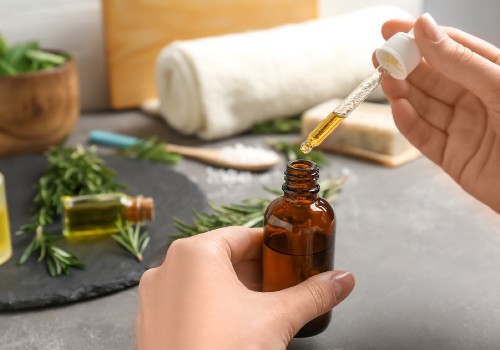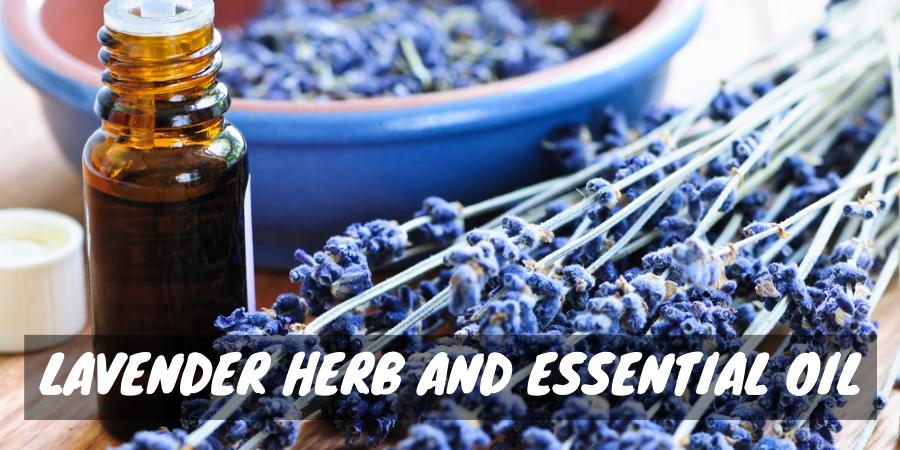If you have oily skin, putting oil on your face may seem like the last thing you’d want to do.
But believe it or not, essential oils can make all the difference between shiny, greasy skin and clear, smooth, luminous skin.
They’re not like other oils: they’re loaded with vitamins, antioxidants and antibacterial compounds that nourish your skin, clear your pores and destroy harmful bacteria.
Curious to see what essential oils can do for your oily skin? Read on!
What Is Oily Skin?
Oily skin is one of the four main skin types (the others being normal, dry and combination).
It’s characterized by a high number of overactive sebum glands in the skin. Sebum is the natural oil that your skin produces as a moisture barrier to prevent dehydration and dryness.
Your skin needs sebum glands to function properly, but it can suffer if they’re too active or too numerous. Too much sebum results in a shiny appearance, clogged pores and breakouts.
How Can I Deal with Oily Skin?

Many people with oily skin turn to harsh cleansers to strip away that excess sebum. But this often has the opposite intended effect: your skin detects that it has no oil and produces too much of it to compensate.
And harsh cleansers typically contain irritating chemicals that can make your sebum glands even more active. They produce oil in an attempt to carry the chemicals away from your skin.
The trick to controlling oily skin is gently providing it with just enough oil to lock in moisture and calm your sebum glands. And essential oils are a great way to do just that.
The 10 Best Essential Oils for Oily Skin
Jojoba Essential Oil
You’ll find jojoba oil in many skincare products, especially moisturizers.
But you don’t need to buy fancy products to get its benefits — just pick up a bottle of jojoba essential oil.
Jojoba oil is extremely similar to your skin’s natural oil in terms of molecular composition. In fact, it’s the closest analogue to your sebum that you’ll find anywhere.
This makes it fantastic for controlling oily skin. Apply a little to your face and your skin will register it as sebum, causing your oil glands to reduce their activity.
Jojoba oil is lightweight, so it won’t clog your pores or weigh your skin down.
And it can be absorbed by the deeper layers of your skin, so you can combine it with other essential oils to enhance their absorption and get more benefits.
Aloe Vera Essential Oil
You’re probably familiar with aloe vera gel, which is found in everything from sunburn ointments to moisturizers to health beverages.
But you’re probably less familiar with aloe vera essential oil. It provides many of the same benefits of aloe vera gel in a more concentrated form.
Aloe vera is super-hydrating, which is essential for proper skin cell functioning. It also contains vitamins B, C and E to promote collagen production, wound healing and defense against sun damage.
And aloe’s natural astringent properties make it great for shrinking the enlarged pores that are characteristic of oily skin.
Finally, aloe is one of nature’s finest antibacterials, able to destroy acne-causing bacteria and clear up your complexion no matter how oily your skin is.
Geranium Essential Oil
Lovely, lush geraniums make for equally lovely and lush essential oils.
And if you have oily skin, you don’t want to miss out on the benefits of geranium essential oil.
The ancient Egyptians used geranium oil to relieve all manner of skin woes, from acne to wrinkles. It hydrates and firms your skin while killing the harmful bacteria that proliferate on oily skin.
Geranium oil’s anti-inflammatory properties soothe redness and irritation caused by acne and excess oil. It’s also adaptogenic, helping your skin cope with stress and irritants that could otherwise make your sebum glands act up.
Patchouli Essential Oil
Some people love its earthy, woody scent, while others hate it.
But nobody can deny patchouli oil’s benefits for oily skin.
Patchouli oil has been used to control dandruff and excess scalp oil for centuries. And its oil-controlling properties also work on your skin.
It has a calming effect on your oil glands, making them less reactive to stress and thus less likely to overproduce sebum.
Patchouli oil also makes your skin more resilient against UV damage, increases collagen production and fights wrinkles. It reduces inflammation and inhibits bacterial growth, making it a must-have for acne sufferers.
Melaleuca (Tea Tree) Essential Oil

No essential oil is more famous for its oil-fighting abilities than melaleuca oil, more commonly known as tea tree oil.
It’s found in everything from dandruff shampoo to hand soap to facial cleansers.
Once it’s on your skin, it gets to work destroying acne-causing bacteria, shrinking pores, hydrating your skin cells and balancing your oil production.
Tea tree oil is a strong antiseptic, making it the go-to natural remedy for breakouts, clogged pores and other side effects of oily skin. And because it’s gentler than many other essential oils, it’s usually well-tolerated by sensitive skin as well.
Roman Chamomile Essential Oil
Roman chamomile may not be a household name, but that doesn’t mean it shouldn’t be a staple of your oily skin toolkit.
It has a unique scent and strong anti-inflammatory properties, making it great for invigorating the senses while soothing your oily skin.
Rich in calming esters, it relaxes your oil glands and relieves irritation from breakouts. It has a slight cooling effect on the skin, similar to menthol, but is much safer for sensitive skin than other cooling ingredients.
Roman chamomile essential oil is even effective at reducing the appearance of acne scars over time. This means that it can improve your complexion even if you’ve currently got your oily skin under control.
Rosemary Essential Oil

One of the most hydrating essential oils out there, rosemary essential oil is fantastic for all skin types, including oily skin.
By delivering water to your skin cells, rosemary essential oil ensures that your skin is hydrated enough to function correctly. Dehydrated skin is more likely to produce improper amounts of oil, causing more breakouts and shininess.
Rosemary essential oil is highly effective at helping your skin heal from damage. It increases circulation, which in turn increases cell turnover, allowing new, undamaged skin cells to take center stage.
Its natural astringent properties shrink your pores and make your skin feel and look smoother.
And last but not least, rosemary essential oil’s antioxidant properties make your skin more resistant against UV damage, toxins and other factors that accelerate aging and impair skin health.
Lemon Essential Oil
Lemon is a well-known home remedy for hyperpigmentation, scarring and other types of skin blemishes.
But its benefits for the skin extend well beyond lightening and brightening.
Lemon essential oil contains tons of vitamin C, an antioxidant that’s critical in preventing free radical damage from sun exposure.
When added to a skin cleanser, it picks up and removes excess sebum without causing your sebum glands to go into overdrive.
Its astringent and antimicrobial properties make for a two-pronged attack on acne, killing bacteria deep within your skin before closing up your enlarged pores.
And it’s even effective against many types of fungal acne, relieving your breakouts even if they’re not caused by bacteria.
Finally, lemon essential oil smells fresh and lively, invigorating your skin and your senses. It deserves a place in your skincare routine no matter what your skin type is.
Cedarwood Essential Oil
Cedarwood has long been used as a home remedy for parasites, insomnia, inflammation and hair loss.
Recently, though, cedarwood essential oil has gained popularity as a natural treatment for oily skin.
It regulates your sebum production while neutralizing acne-causing bacteria, resulting in clear, even, shine-free skin.
It’s known to increase blood circulation, resulting in higher cell turnover and slower aging.
And it serves as a suit of armor for your skin, guarding it against environmental toxins and pollutants that can agitate your sebum glands and increase oiliness.
Lavender Essential Oil
Known mainly as a relaxing sleep aid, lavender essential oil is also a skincare superhero.
It has many benefits for all skin types, including oily skin.
For starters, lavender essential oil is known to kill the bacteria and fungi that cause acne. This can break the breakout cycle that acne sufferers get trapped in, resulting in less oily skin over longer periods of time.
It also encourages skin healing, so you’ll recover from breakouts faster and with less scarring.
Lavender essential oil also protects you from UV damage by inhibiting the generation of cell-destroying free radicals. This reduces the likelihood of post-sun exposure oiliness caused by UV irritation.

